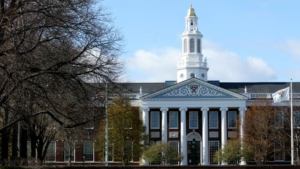Great Britain has been trying to strengthen its ties with China by sending a series of senior officials to the country this year. The intention behind this “charm offense” is to mend relations with a country that holds significant sway in the global order, which has been disrupted by former US President Donald Trump’s actions.
However, Britain’s recent decision to gain control of a Chinese-owned steel mill has caused a stir in diplomatic relations. This move, which was made to prevent the shutting down of the mill and avoid the loss of 2,700 jobs, has raised concerns about Prime Minister Keir Starmer’s efforts to foster closer ties with China. This situation has become even more complicated with fears of protectionism and the consequences of Mr. Trump’s tariffs on international trade.
The government’s attempts to negotiate with the Chinese company owning the plant, Jingye, were unsuccessful, and there have been accusations of bad faith on the part of the company. British officials have also expressed concerns about allowing Chinese companies to invest in sensitive industries, in light of Jingye’s refusal to order crucial raw materials that would have led to the closure of the mill.
The dispute between Britain and China has not only strained their relations but also poses a challenge to Mr. Starmer’s government, which had aimed to improve ties that had deteriorated in recent years due to China’s crackdown in Hong Kong and allegations of Chinese cyberattacks. Despite these concerns, better trade relations with China are crucial for Britain’s economic growth.
Even with these challenges, both countries continue to engage in diplomatic efforts. The British Chancellor of the Exchequer visited Beijing to encourage Chinese investment, and the top military official from Great Britain traveled to Beijing to strengthen military communication. These attempts to foster relations between the two nations harken back to the era of former Conservative Prime Minister David Cameron, who had declared a “golden era” of economic ties between Britain and China.
However, there have been setbacks. Hong Kong officials denied entry to a British parliamentary member who was part of an alliance criticizing the threat to free speech in Hong Kong. There are also ongoing debates about China’s plans to build a new embassy near London’s financial district, with concerns about potential espionage activities. Despite these hurdles, both countries continue to seek ways to strengthen their economic and political ties.
Source: https://www.nytimes.com/2025/04/15/world/europe/a-crisis-at-a-british-steel-mill-has-cast-a-shadow-over-uk-china-relations.html






